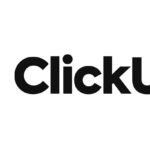Introduction:
Achieving financial freedom and mastering money management are essential life skills. This guide will provide valuable advice and top online resources to help you gain control of your finances, save money, and invest wisely. This post aims to make personal finance accessible to everyone. Let’s embark on the journey to financial freedom!
Section 1: Create a Budget
The foundation of smart money management is having a clear understanding of your income and expenses. A budget helps you allocate your finances effectively and identify areas for potential savings.
Advice: Track your income and expenses regularly, and prioritize needs over wants. Adjust your budget periodically to accommodate changes in your financial situation.
Top Online Sources:
- Mint – A popular budgeting app that helps you track and categorize your expenses and set financial goals.
- YNAB – A budgeting tool focused on helping you live within your means and save for the future.
- Google Sheets – A free online spreadsheet tool that can be used to create and manage your budget.
Section 2: Build an Emergency Fund
An emergency fund is a financial safety net designed to cover unexpected expenses, such as medical bills or job loss, without relying on debt.
Advice: Aim to save at least three to six months’ worth of living expenses in a separate, easily accessible account. Prioritize building your emergency fund before focusing on other financial goals.
Top Online Sources:
- Ally Bank – An online bank offering high-yield savings accounts, which can be a suitable option for your emergency fund.
- NerdWallet – A personal finance website that provides advice and recommendations on the best savings accounts for emergency funds.
- Bankrate – A platform that compares various banking products, including high-yield savings accounts, to help you find the best option for your emergency fund.
Section 3: Pay Off Debt
Eliminating debt is crucial to achieving financial freedom. Prioritize high-interest debts and develop a repayment strategy that works for you.
Advice: Consider debt repayment methods such as the debt snowball (paying off smaller debts first) or debt avalanche (focusing on high-interest debts first). Avoid accumulating new debt while paying off existing balances.
Top Online Sources:
- Credit Karma – A platform that offers free credit score monitoring and personalized recommendations for debt management.
- National Foundation for Credit Counseling – A non-profit organization that provides financial counseling and education services.
- Unbury.me – A free online calculator that helps you compare the debt snowball and debt avalanche methods to determine the best strategy for your situation.
Section 4: Save and Invest
Saving and investing are essential for building wealth and securing your financial future. Learn about different investment options and develop a strategy that aligns with your goals and risk tolerance.
Advice: Focus on long-term investment strategies, such as low-cost index funds and dollar-cost averaging. Diversify your investment portfolio to minimize risk.
Top Online Sources:
- Vanguard – A leading investment management company known for its low-cost index funds and ETFs.
- Fidelity – A financial services company that offers a wide range of investment options, including mutual funds, stocks, and bonds.
- Investopedia – A comprehensive online resource for financial education, including articles, tutorials, and guides on various investment topics.
Section 5: Retirement Planning
Planning for retirement is crucial to ensure you have enough savings to maintain your desired lifestyle during your golden years.
Advice: Start saving for retirement early and take advantage of employer-sponsored retirement plans, such as 401(k)s, or open an individual retirement account (IRA). Maximize your retirement savings by contributing enough to receive any available employer match.
Top Online Sources:
- Social Security Administration – Offers information on Social Security benefits and provides a retirement estimator tool.
- T. Rowe Price – A financial services company that offers retirement planning tools and resources.
- AARP – A non-profit organization that provides retirement planning advice and resources for individuals over the age of 50.
Section 6: Frugal Living and Smart Spending
Adopting a frugal lifestyle and making informed spending decisions can significantly contribute to your financial success.
Advice: Embrace a frugal mindset by cutting unnecessary expenses, shopping smart, and living within your means. Utilize budgeting tools and apps to monitor your spending habits.
Top Online Sources:
- The Penny Hoarder – A personal finance blog that offers money-saving tips and frugal living advice.
- Money Saving Mom – A blog that shares practical tips on budgeting, frugal living, and couponing.
- Honey – A browser extension that automatically finds and applies coupon codes at checkout for online shopping.
Achieving Financial Freedom: Key Principles
Achieving financial freedom and mastering money management may seem daunting, but with the right tools and resources, it’s possible for anyone. Keep these key principles in mind as you embark on your financial journey:
- Create a budget: Understand and manage your income and expenses to make informed financial decisions.
- Build an emergency fund: Prioritize saving for unexpected expenses to avoid relying on debt.
- Pay off debt: Develop a debt repayment strategy and work toward becoming debt-free.
- Save and invest: Focus on long-term investment strategies to build wealth and secure your financial future.
- Plan for retirement: Start saving early and take advantage of various retirement savings options.
- Embrace frugal living: Adopt a frugal mindset and make smart spending decisions to maximize your financial success.
With this beginner’s guide, the valuable advice provided, and the resources mentioned, you’re now equipped to take control of your finances and work towards financial freedom. Stay committed to learning, and you’ll be on your way to mastering money management.







